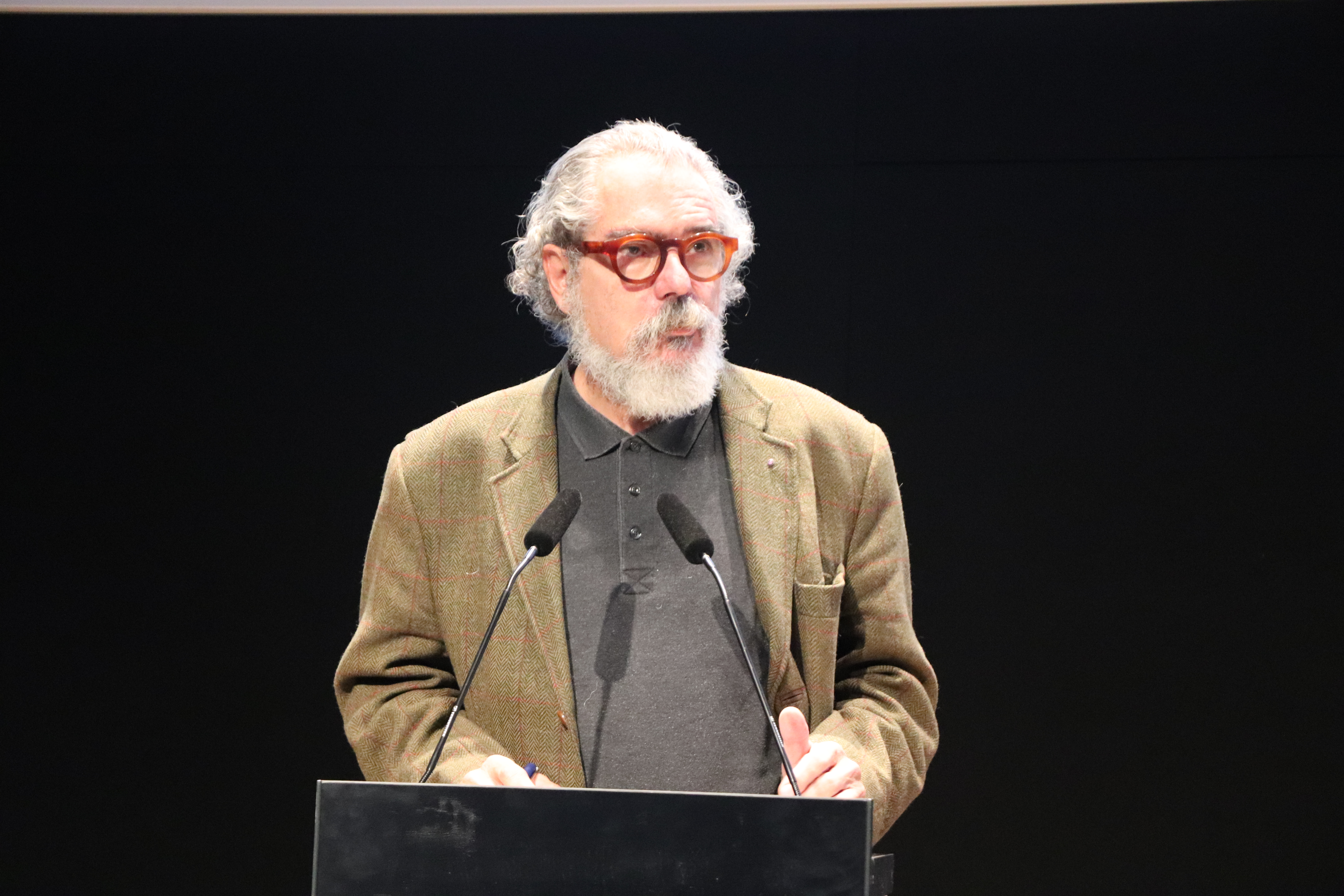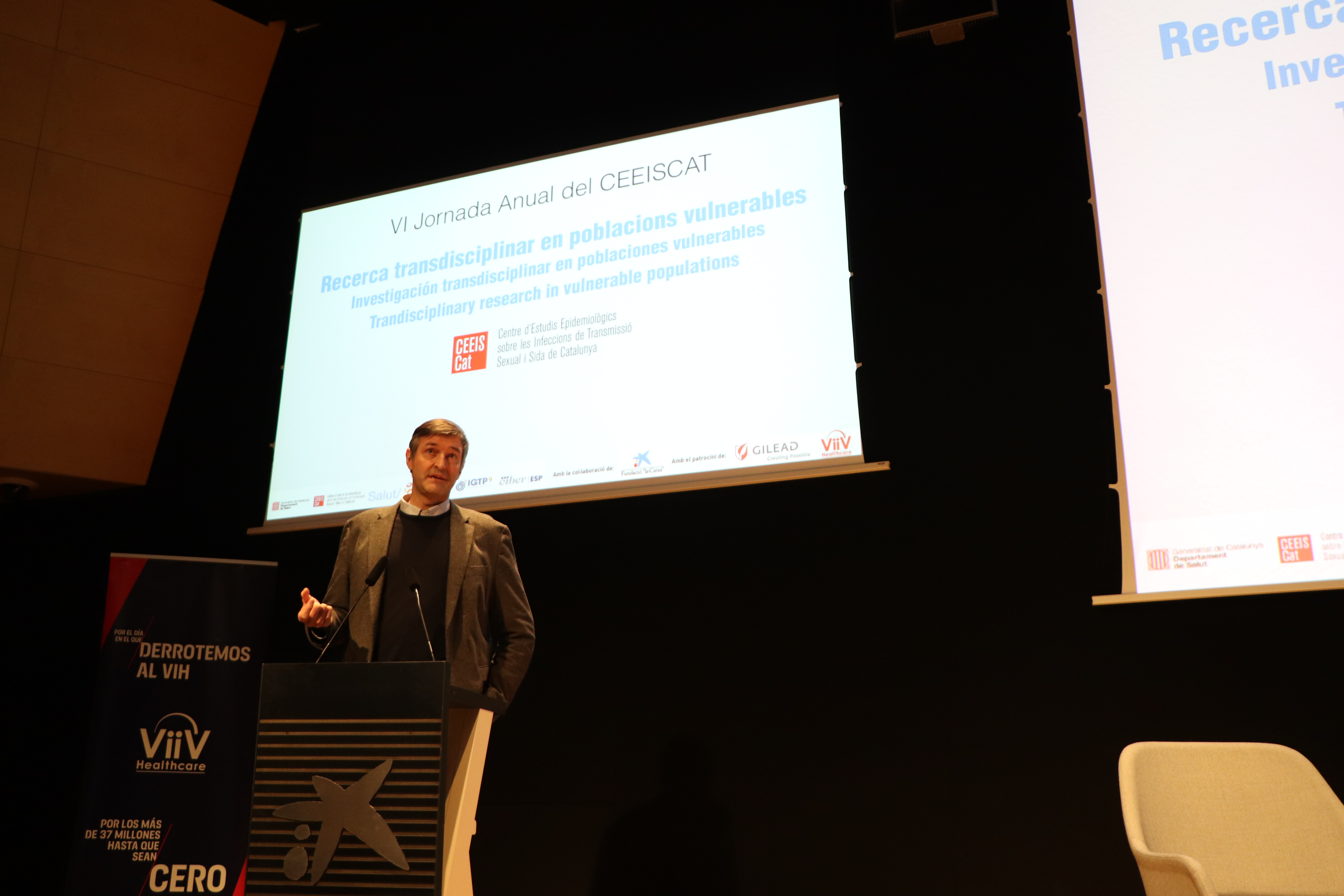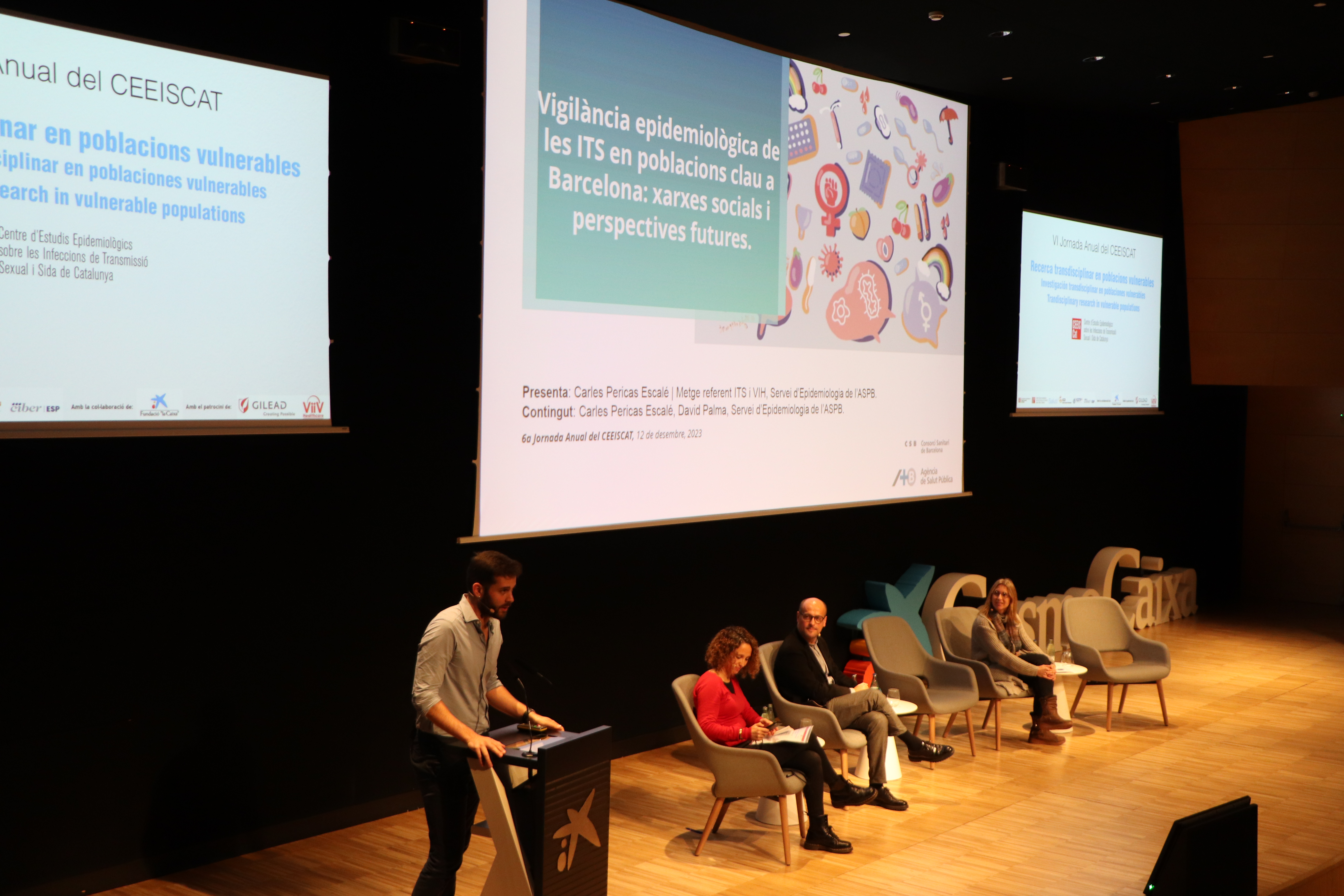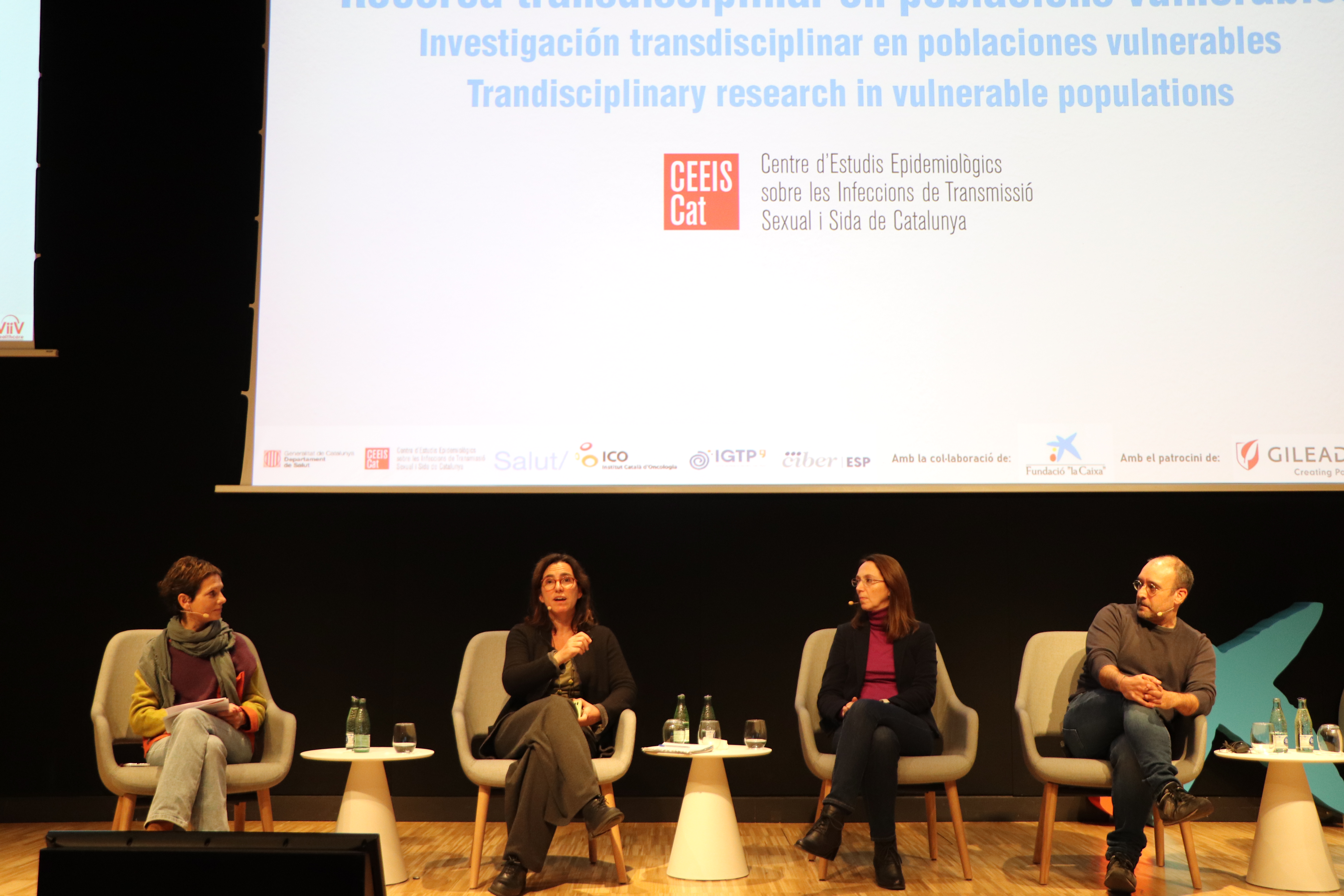CEEISCAT celebrates its 6th Annual Conference, focusing on transdisciplinary research in vulnerable populations

On 12 December, the Centre for Epidemiological Studies on HIV/AIDS and STI of Catalonia - CEEISCAT held its 6th Annual Conference at the science museum CosmoCaixa Barcelona. This year's event emphasised the importance of transdisciplinary research in vulnerable populations, highlighting the cooperation between various disciplines to achieve a comprehensive understanding of projects that can better cater to the needs of these populations. In line with this focus, the conference included two panel discussions with health professionals, institutions, and various entities that have been closely involved in numerous research projects with CEEISCAT over the years.
The session began with an opening address by Mr Joan Colom, Deputy Director General of Addictions, HIV, STIs, and Viral Hepatitis at the Department of Public Health, who underscored the significance of these transdisciplinary alliances. Following this, Dr Jordi Casabona, the scientific director of CEEISCAT, welcomed attendees and provided a brief introduction, highlighting CEEISCAT's track record in collaborative research studies and the enduring importance of the Annual Conference. This introduction led to the first panel discussion titled "Methodology and Strategies for Approaching Vulnerable Populations."
Moderated by Dr Cristina Agustí, an epidemiologist at CEEISCAT, this panel featured a presentation by Dr Juan Manuel Leyva, a professor and coordinator of the Vulnerability and Health Nursing Research Group (GRIVIS) at the Autonomous University of Barcelona. Dr Leyva emphasised the role of qualitative methods as essential tools for complementing and understanding data provided by quantitative studies, as well as for identifying variables and new study hypotheses to intervene effectively. Next, Dr Tom Platteau, a doctor from the Department of Clinical Sciences at the Institute of Tropical Medicine in Antwerp, shared lessons learned over 10 years and future plans for online HIV and other STIs testing from Belgium.
Dr Carles Pericas, a medical specialist in STIs and HIV from the Epidemiology Service of the Public Health Agency of Barcelona, provided examples of how technology and social media can contribute to the epidemiological surveillance of STIs in key populations in Barcelona, highlighting interventions such as the Saunes Program and the Apps Program, which view dating apps as an opportunity to develop targeted interventions for gay, bisexual, and other men who have sex with men (GBHSH) and transgender women. Finally, Dr Clara Prats, a professor and researcher from the Research Group on Computational Biology and Complex Systems at the Polytechnic University of Catalonia - UPC, presented agent-based models in the study of vulnerable populations, which offer multiple variables that can be crucial in understanding the trajectory of an individual and provide a more detailed and heterogeneous picture of the study subjects.
The second panel discussion, moderated by Dr Cinta Folch, co-IP of CEEISCAT, focused on the challenges and opportunities of interdisciplinary collaborations. Social transformation through community research was the central theme of Dr Daniela Rojas' presentation, the Director of the Department of Community Research at Coalition Plus. Among the various examples discussed, Dr Rojas highlighted the Right Plus network, an initiative of researchers, academic/research institutions, and community-based organizations from several Ibero-American countries interested in promoting research on sexual health and vulnerable populations, of which CEEISCAT is a founding member.
Additionally, Rosina Malagrida, manager of the Living Lab of Health at the IrsiCaixa AIDS Research Institute, proposed solutions to enhance the social impact of research with transdisciplinary approaches, emphasising the importance of establishing collaborative networks among various stakeholders, such as the Escoles Sentinella network, jointly promoted by CEEISCAT and other collaborating entities.
Next, Dr Elisa Martró, the leader of the Pathogen Diagnostics and Genomic Epidemiology group at IGTP and the Microbiology Service of the Germans Trias i Pujol University Hospital, presented the contributions of the Microbiology Laboratory to the challenges of Public Health, especially concerning viral hepatitis, tuberculosis, and emerging pathogens such as monkeypox virus. Finally, Mr Alberto Capitán, director of the Actua Vallès Association, emphasised the crucial role of community entities in the design, implementation, and dissemination of community research projects, highlighting their ability to provide a multidisciplinary perspective and the significant value they bring when reaching out to vulnerable populations.
After two hours of sharing different approaches and experiences, Dr Casabona concluded the event by summarising the day's proceedings and then handed over the floor to Dr Jordi Barretina, director of the Germans Trias i Pujol Research Institute (IGTP), who closed the event by emphasising the relevance of partnerships and collaborations among diverse stakeholders to achieve more comprehensive, thoughtful, and community-centred scientific research.


The conference featured simultaneous translation into Spanish and English, was available for online viewing, and concluded with a refreshment session for all attendees.


